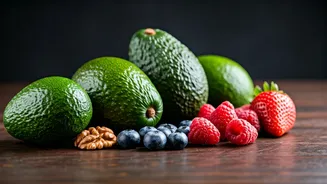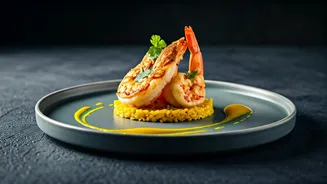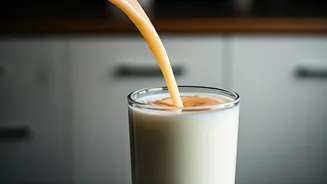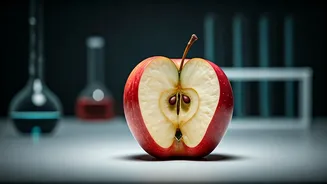Protein: Building Blocks
Protein is fundamental for hair health, acting as its primary building block. Hair is essentially composed of keratin, a protein. Insufficient protein intake
can lead to brittle, thinning hair, and even hair loss. To ensure adequate protein, consider incorporating lean meats, poultry, fish, eggs, and dairy products into your diet. For vegetarians and vegans, legumes such as lentils and beans, tofu, tempeh, and quinoa offer excellent protein sources. Aim for protein-rich meals at every sitting to maintain healthy hair growth, and consult a healthcare professional for personalized dietary recommendations to meet your daily protein requirements and maintain overall health. Consistent protein intake supports the production of keratin, leading to stronger, more resilient hair.
Iron: Oxygenating Power
Iron plays a critical role in hair health by facilitating oxygen transport to hair follicles. Iron deficiency can interrupt this process, leading to hair loss and impaired hair growth. Iron-rich foods, such as spinach, lentils, red meat, and fortified cereals, can help address this issue. Ensuring proper iron levels requires not only consuming iron-rich foods but also optimizing their absorption. Pairing iron-rich foods with vitamin C-rich sources, like citrus fruits, enhances iron absorption. Conversely, excessive intake of calcium and tannins (found in tea and coffee) can hinder iron uptake. Regular blood tests and consultation with a healthcare professional can help you monitor and manage your iron levels, maintaining optimal conditions for hair growth and overall well-being. Addressing iron deficiencies through diet can significantly improve hair health, making it thicker and more vibrant.
Zinc: Growth Catalyst
Zinc is essential for hair tissue growth and repair, playing a crucial role in maintaining hair's structure. Deficiency in zinc often manifests in hair loss and other scalp issues. To support healthy hair growth, include zinc-rich foods in your diet, such as oysters, beef, pumpkin seeds, and spinach. Oysters are particularly rich in zinc, followed by beef, which also provides protein and iron. For those with dietary restrictions, pumpkin seeds and spinach serve as excellent plant-based alternatives. Proper zinc intake not only promotes hair growth but also helps keep the scalp healthy. It's advisable to take zinc supplements under medical supervision. Consistent consumption of zinc-rich foods is a simple yet effective way to maintain healthy hair and scalp.
Vitamin C: Antioxidant Shield
Vitamin C serves as a potent antioxidant, safeguarding hair against damage caused by free radicals. This vital vitamin is crucial for collagen production, a protein that strengthens hair strands. By incorporating vitamin C-rich foods such as citrus fruits (oranges, grapefruits), strawberries, and bell peppers into your diet, you fortify your hair against oxidative stress and support its health. Vitamin C boosts iron absorption, improving the delivery of oxygen to the hair follicles, thereby enhancing hair growth. Eating vitamin C-rich foods on a daily basis is a convenient and delicious way to ensure your hair receives the necessary nutrients. Regular consumption is essential for maintaining strong, healthy, and resilient hair. Vitamin C provides several benefits for overall health, contributing to a vibrant and lustrous appearance.
Vitamin E: Follicle Guardian
Vitamin E is another powerful antioxidant that shields the hair follicles from damage and promotes healthy hair growth. It helps to repair and maintain the scalp, resulting in an environment favorable for hair growth. You can increase your vitamin E intake by consuming foods like almonds, sunflower seeds, and avocados. Almonds and sunflower seeds are rich sources, while avocados provide a good mix of essential fats. Vitamin E consumption can strengthen hair follicles, reducing breakage and promoting shine. Adding these foods to your diet can lead to healthier hair. This vitamin provides additional benefits, contributing to overall health and a more radiant complexion. Consistent intake of vitamin E can result in stronger, more resilient hair.
Biotin: Hair Strengthener
Biotin, a B vitamin, is often associated with hair growth. While biotin deficiency is rare, it can contribute to hair thinning and breakage. Including biotin-rich foods can enhance the strength and appearance of your hair. Eggs, nuts, seeds, and sweet potatoes are good sources. Eggs are particularly rich in biotin, while nuts and seeds provide healthy fats along with the vitamin. Sweet potatoes contribute additional nutrients. Eating foods containing biotin is one way to provide your body with this vital nutrient. Adding biotin-rich foods to your diet promotes stronger, more resilient hair. Including these foods into your diet will lead to healthier, more radiant hair. Regular consumption ensures that your body has the resources for maintaining strong and healthy hair.
















